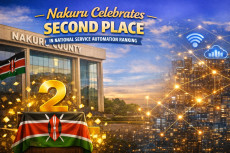- Loneliness may be rising in a world full of connections, but it does not have to win.
- It becomes easy to retreat into digital spaces because they feel safe and familiar, but that retreat often deepens the sense of disconnection.
Loneliness has quietly become one of the defining emotions of modern life, even in a time when it feels like everyone is just a message, emoji or notification away.
We scroll through endless updates, double tap photos from people we barely know, and join group chats that buzz day and night, but still, a surprising number of people admit they feel deeply alone.
It is a quiet ache that sits beneath the surface of our hyper connected world, growing louder each time an online interaction fails to translate into something real or comforting.
A major reason loneliness feels so widespread today is that digital communication, for all its convenience, rarely offers the depth that nurtures true connection.
We have grown used to conversations that start and end abruptly, relationships that exist entirely through screens, and friendships measured by how often someone reacts to our posts.
Read More
Social media can make it seem like everyone else is thriving, happier, more successful and more surrounded, leaving many people feeling isolated in comparison. Even in a crowded feed, you can feel like you are watching life from the outside.
What makes loneliness in the digital age even more complicated is the way modern routines shrink opportunities for genuine human contact.
Many people work remotely, study online, commute alone, or live in cities where community spaces are disappearing.
It becomes easy to retreat into digital spaces because they feel safe and familiar, but that retreat often deepens the sense of disconnection.
After enough time behind screens, some people even struggle to initiate face to face conversations or maintain relationships that require emotional effort.
It is no wonder then, that loneliness is now being recognised as more than a private struggle. Even globally, young people are raising the alarm.
Nearly 400 youth leaders from more than 40 countries recently declared loneliness a public health priority during the Global Model World Health Organization (WHO) gathering, urging governments to take the issue seriously by adopting the Youth Declaration on Social Connection.
Their message was simple but powerful. Social disconnection is harming people’s wellbeing far more than we realise, and societies need to create environments where meaningful relationships can flourish again.
But beyond policy and research, the heart of the issue remains very personal. Loneliness often shows up in the small gaps of everyday life.
The unanswered message, the night spent scrolling instead of talking, the friends who feel distant despite being constantly online. It is the feeling of being surrounded yet unseen, connected yet unsupported.
And while technology has reshaped how we communicate, it has not diminished the basic human need to feel heard, understood and valued.
What the digital age demands from us is intentionality. It asks us to look up from our screens, to reach out to people in ways that feel genuine, to nurture relationships offline as much as online, and to remember that presence still matters.
Loneliness may be rising in a world full of connections, but it does not have to win. With small, deliberate acts of care, checking on a friend, joining a community, making time for face to face interaction, we can slowly rebuild the sense of belonging that makes life feel fuller.
In the end, the antidote to loneliness is not just more communication, but deeper, more human connection. And even in a digital world, that is something we can choose to create.
Stay connected with us on WhatsApp and X for instant updates and breaking news as it happens.






-1772009045-md.jpg)



